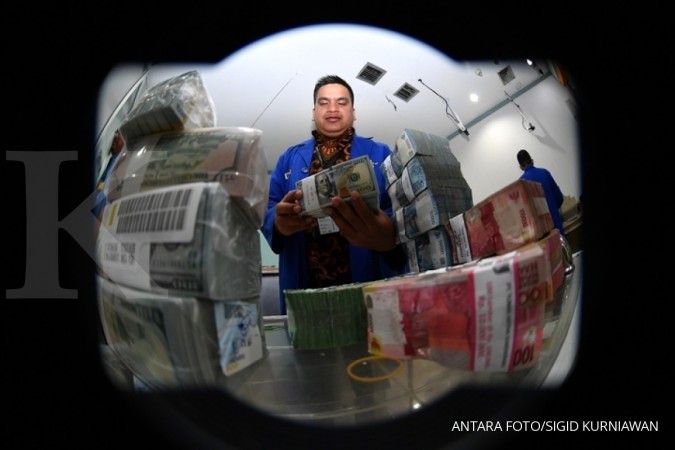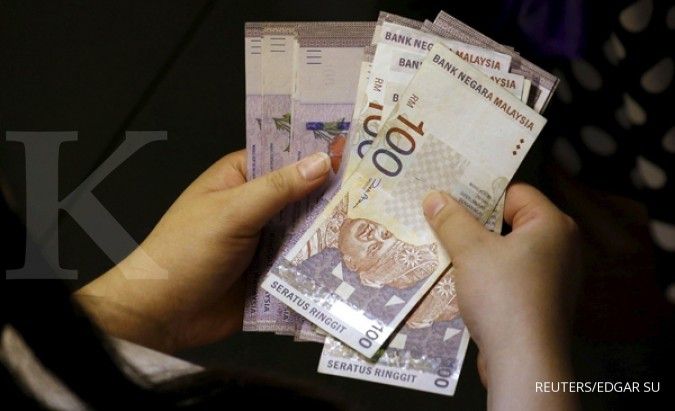KONTAN.CO.ID - JAKARTA. Indonesia's foreign exchange reserves (Forex) in February 2024 have decreased again, but their value is still relatively high. In March, the foreign exchange reserves are projected not to change much from the current position. Bank Indonesia (BI) recorded that the foreign exchange reserves at the end of February 2024 amounted to US$ 144 billion, down compared to the position in January which was US$ 145.1 billion. This decrease in foreign exchange reserves was influenced by the government's foreign debt payments. The Chief Economist of Bank Central Asia (BCA) David Sumual said that the foreign exchange reserves in February were still relatively high, but indeed decreased compared to January 2024.
Baca Juga: Indonesia's Foreign Exchange Reserves in 2024 Have the Potential to Reach Up to US$ 155 Billion According to him, the decrease in foreign exchange reserves is reflected in the flow of foreign funds in the capital market which has decreased. In detail, throughout February 2024, the outflow of bond market funds was recorded at around IDR 12.8 trillion. "But in the stock market, there is an inflow of IDR 16.7 trillion, so foreigners are entering the stock market. It is suspected that some foreigners are leaving but some are repositioning to other instruments SRBI or SVBI, foreign exchange certificates, and BI rupiah certificates," he said to KONTAN, on Thursday (7/3). David explained, that Indonesia's foreign exchange reserves are projected to continue to rise in March 2024. One of the factors is driven by the position of the rupiah which is currently considered relatively stable.
"But indeed in March this market is quite dynamic, the latest American economic data is quite strong. So it creates expectations of a decrease in The Fed's interest rate could be postponed again," he added. As a result, said David, it boosted the dollar index. Where, throughout the year to date (Ytd) the dollar index rose 2%. Meanwhile, the Chief Economist of Bank Permata Josua Pardede said, the decrease in foreign exchange reserves was influenced by the government's foreign debt payments. This is related to the maturity of one of the global bonds, namely RI0224, in mid-February 2024, with a value of US$ 474 million. "The trade balance surplus also tends to decrease in February 2024 due to the trend of rising oil prices, while coal prices have decreased. However, the decrease tends to be limited in line with the inflow of funds into the domestic financial market," he said.
Baca Juga: Government Debt Matures, Indonesia's Foreign Exchange Reserves Shrink in January 2024 Josua mentioned the net inflow in the stock and bond market was recorded at US$ 345 million in February. In detail, the net inflow in the stock market reached US$ 646 million, while in the bond market, foreign investors recorded a net outflow of US$ 302 million. "The position of these foreign exchange reserves is equivalent to financing 6.5 months of imports or 6.3 months of imports and government foreign debt payments, and is above the international adequacy standard of about 3 months of imports," he explained. Josua predicts, there is potential for an increase in foreign exchange reserves in the second half of 2024. According to him, this is based on improving risk sentiment especially related to wait and see related to the results of the 2024 elections. In addition, he said, expectations of a decrease in global policy interest rates are expected to boost risk-on sentiment in emerging markets, including Indonesia.
Baca Juga: Indonesia's Foreign Exchange Reserves Increase at the End of 2023 "Supported by positive prospects for Indonesian economic growth and controlled inflation, it can increase inflows in Foreign Direct Investment (FDI) and the portfolio market," he explained. Josua said, the risk that affects foreign exchange reserves in the future is the widening current account deficit, which is triggered by concerns about a slowdown in the global economy and the continuation of commodity price normalization. "However, the widening of the deficit is expected to remain within controlled limits and does not pose a significant threat to the position of foreign exchange reserves in 2024," he said. Meanwhile, the Chief Economist of Bank Syariah Indonesia (BSI) Banjaran Surya Indrastomo said that although the decrease in Forex was influenced by foreign debt payments, what needs to be considered is the trend of inflow and outflow of funds from the national financial market.
Baca Juga: The Performance of Index-based Mutual Funds Predicted to be Positive in 2024. "At the end of February 2024, the Dollar Index strengthened from 103.27 to 104.36 in line with the improvement in economic conditions in the US driven by increased consumption," he added.
Banjaran said, the composite PMI in February 2024 also showed that the US consistently remained in the expansion zone (>50). According to him, this has the potential to hold back the attractiveness of domestic assets so that capital inflow is projected to slow down. "The strengthening of economic conditions in the US is considered to affect the volatility of the flow of capital into Indonesia in the future, especially in SBN and SRBI instruments. Based on BI data, the transaction of non-resident (foreign) capital inflow decreased to IDR 11.58 trillion in the February 2024 period," he explained. Furthermore, he added, that economic growth in the US that is on track encourages investors to shift assets to riskier instruments. "So we project that inflow will increase in the stock market even though there is outflow in the fixed income market. Overall, forex has the potential to decrease but is still far above the minimum limit of US$ 135.5 billion in March 2024," he concluded.




